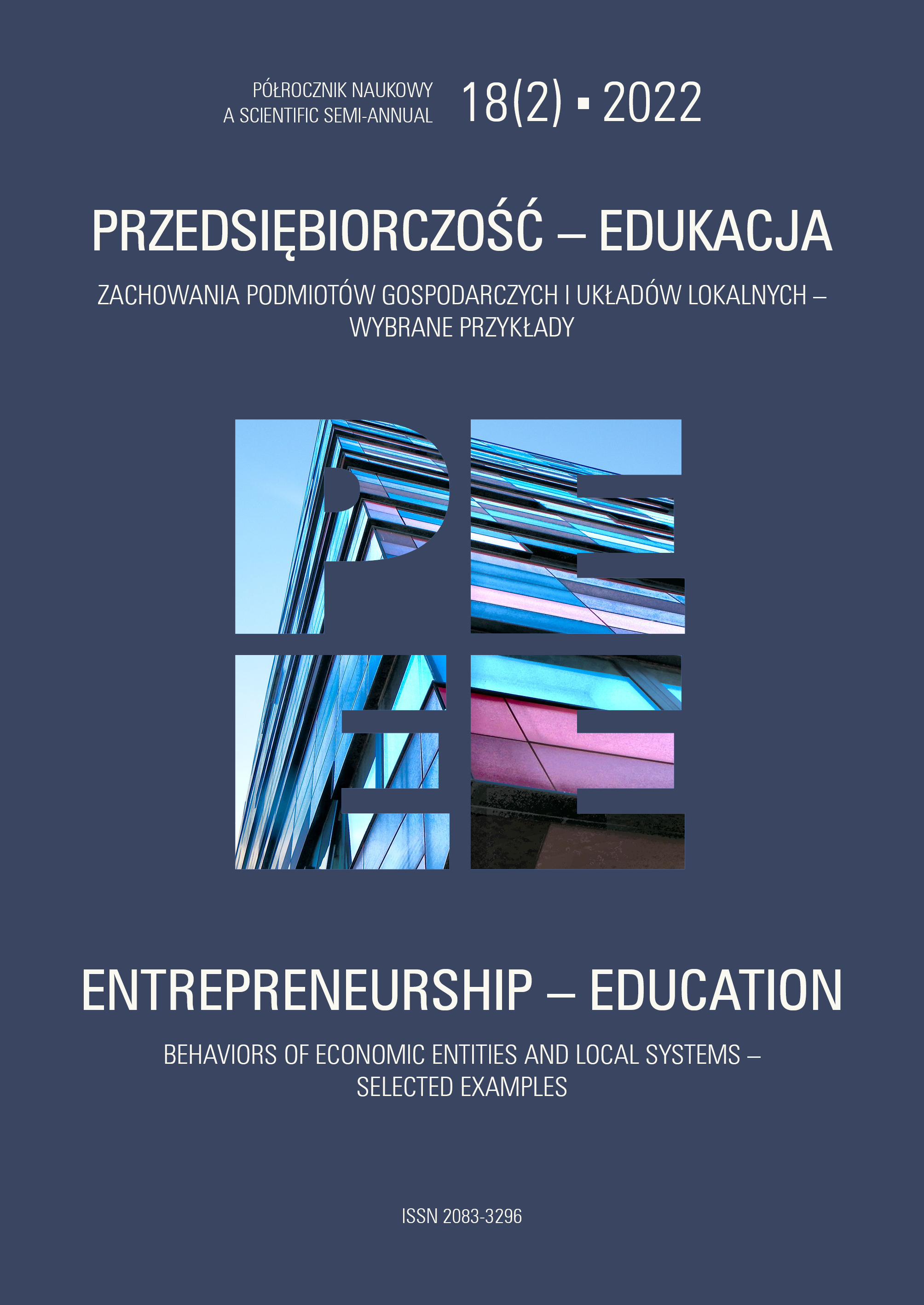Developing relationships with clients: case study of monopolist „Totalizator Sportowy”
DOI:
https://doi.org/10.24917/20833296.182.8Keywords:
Totalizator Sportowy, monopolist company, relations with clients, trustAbstract
The contemporary dynamically changing environment requires companies to form long-term relationships with clients, tailored to their needs. The essence of the relationship is based on mutual fulfilment of commitments and trust. Trust in particular is an inherent feature of the relationships. The aim of the paper is to analyse the ways of shaping the relationship with the client based on the example of the monopolistic company „Totalizator Sportowy”. The authors used the following research methods: literature review, document analysis and a diagnostic survey. The research allowed for the verification (in a limited scope) that the relations between „Totalizator Sportowy” and its customers constitute the foundation of the company’s operations and the relations are based on the trust developed over many years of the company’s operation on the market. In addition, the activities undertaken by the enterprise in order for the relationship with the client to have a long-term nature have been identified, i.e.: the successive introduction of new products to the market (games), the implementation of an IT system enabling the use of products in an online form, having appropriate safety certificates, conducting social and charity activities, informing customers about the risk related to the participation in the offered games, continuously building trust in the company by improving customer service standards or transparency of company data.
References
Bauer, H.H., Grether, M., Leach, M. (2002). Customer relations through the Internet. Journal of Relationship Marketing, 1(2), 39–55.
Bellingkrodt, S., Wallenburg, C.M. (2015). The role of customer relations for innovativeness and customer satisfaction: A comparison of service industries. The International Journal of Logistics Management. 26(2), 254–274.
Burnett, K. (2002). Relacje z kluczowymi klientami. Kraków: OE.
Cheverton, P. (2001). Zarządzanie kluczowymi klientami. Kraków: OE.
Gordon, J.H. (2001). Relacje z klientem. Marketing partnerski. Warszawa: Polskie Wydawnictwo Ekonomiczne.
Kampani, N., Jhamb, D. (2020). Analyzing the role of e-crm in managing customer relations: A critical review of the literature. Journal of Critical Review, 7(4), 221–226.
Keillor, B.D. (2007). Marketing in the 21st Century: Company and customer relations. Praeger.
Kolemba, A. (2009). Relacje przedsiębiorstwa z otoczeniem jako instrument budowania przewagi konkurencyjnej. W: M. Cisek (red.), Kapitał relacyjny w nowoczesnej gospodarce. Warszawa: Wydawnictwo Studio Emka.
Maciejewski, J. (2012). Strategia biznesowa i technologia informatyczna. Zeszyty Naukowe Wydziału Informatycznych Technik Zarządzania Wyższej Szkoły Informatyki Stosowanej i Zarządzania, Współczesne Problemy Zarządzania, 1, 99–137.
Mazurek-Łopacińska, K. (2003). Zachowania nabywców i ich konsekwencje marketingowe. Warszawa: Polskie Wydawnictwo Ekonomiczne.
Mitręga, M. (2008). Marketing relacji. Warszawa: Wydawnictwo CeDeWu.
Morgan, R.M., Hunt, S.D. (1994). The Commitment Trust Theory of Relationship Marketing. Journal of Marketing, 158(3), 20–38.
Otto, J. (2001). Marketing relacji. Koncepcja i stosowanie. Warszawa: Wydawnictwo C.H. Beck.
Payne, A., Frow, P. (2005). A strategic framework for customer relationship management. Journal of Marketing, 69(4), 167–176.
Storbacka, K., Lehtinen, R. (2001). Sztuka budowania trwałych relacji z klientami. Kraków: Oficyna Ekonomiczna.
Subramanian, K.R., Chennai, T.N. (2017). Building customer relations through direct marketing. International Journal of Combined Research and Development, 6(9), 799–810.
Taranko, T. (2014). Refleksje nad wartością marketingu. W: A. Czubata, P. Hadrian, J.W. Wiktor (red.), Marketing w 25-leciu gospodarki rynkowej w Polsce. Warszawa: Wydawnictwo PWE.
Totalizator Sportowy. (2022, 15 lipca). Raport zintegrowany za rok 2020. Wygrywamy razem. Pozyskano z: https://raport.totalizator.pl/
Totalizator Sportowy. (2022, 15 lipca). Misja i wizja Totalizatora Sportowego. Pozyskano z: https://www.totalizator.pl/firma/misja-i-wizja
Totalizator Sportowy. (2022, 15 lipca). Raport Odpowiedzialności Społecznej 2020. Pozyskano z: https://www.totalizator.pl/storage/files/2022/4/20/36234b25-239d-49ce-83a1-ffb78ce76205/Raport-CSR2017-18-prev.pdf
Ward, T., Dagger, T.S. (2007). The complexity of relationship marketing for service customers. Journal of Services Marketing, 21(4), 281–290.
Witkowska, D. (red.). (2004). Statystyka w zarządzaniu. Łódź: Wydawnictwo AND.
Wróblewska, W. (2013). ZarządzaRycnie relacjami z klientami jako źródło sukcesu organizacji. Zeszyty Naukowe Uniwersytetu Przyrodniczo-Humanistycznego w Siedlcach, 97, 229–239.
Downloads
Published
How to Cite
Issue
Section
License
Copyright (c) 2022 Entrepreneurship – Education

This work is licensed under a Creative Commons Attribution-NoDerivatives 4.0 International License.
Articles are published under the terms of the Creative Commons License (CC BY-ND 4.0; Attribution– NoDerivs).

